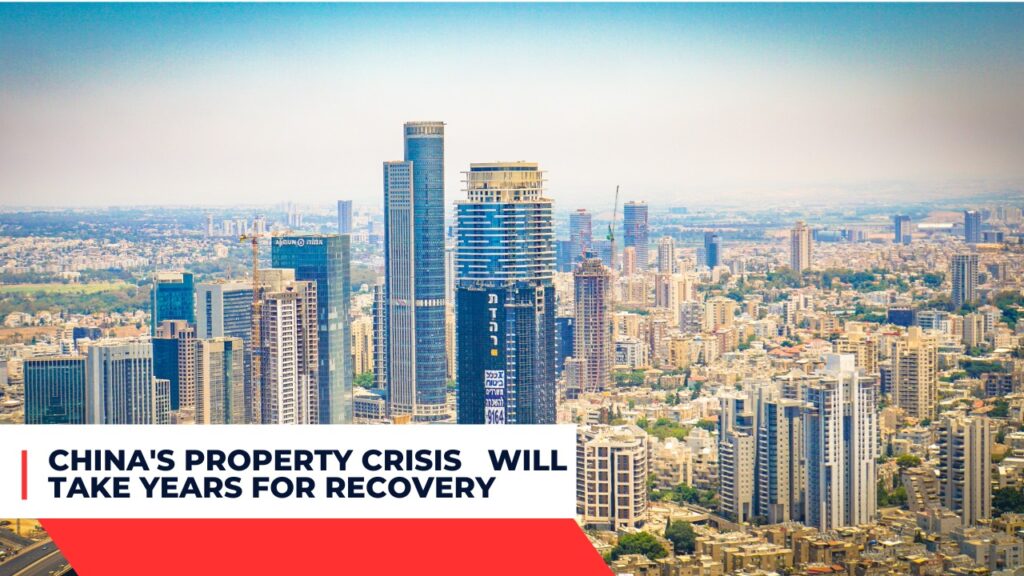China is currently facing an acute property crisis that threatens 30% of its economy and many well-off residents have mortgages they will never repay; suppliers to developers like Country Garden and Evergrande are going bankrupt due to defaulted debt obligations.
Beijing has taken this issue seriously and taken numerous steps to stabilize the market; however, this process will likely take multiple years before bearing fruit.
What’s the problem?
Beijing unveiled its “three red lines” policy in 2021 in order to deflate property market bubbles while decreasing developers’ reliance on debt, thus lessening risky financial profiles in the sector and curbing price surges that made homeownership harder for middle-class Chinese.
Policy implementation led to an acute property crisis as large developers like China Evergrande Group and Country Garden defaulted on their debts and stopped construction activities, severely impacting both the economy and angering many residents alike.
As a result, mortgage payments have fallen off significantly and some buyers have even stopped making payments altogether and staged protests against their lenders. Some analysts fear a property collapse may trigger a wider banking crisis that would threaten both China and the world; as VOA reported from an interview with Shanghai economist Andy Xie.
What’s the solution?
Beijing has taken measures to prevent the collapse of the property sector by restricting how much debt developers could take on, prohibiting short-term fund borrowing by companies and encouraging developers to build homes for locals. Beijing also increased monetary support and cut lending rates in order to stimulate the market and encourage buyers to secure mortgages when buying pre-built units.
But these efforts are encountering obstacles; developers cannot complete homes due to lack of cash; they owe billions of dollars in debts owed to banks and investors who purchased China Evergrande bonds on overseas bond markets, yet homebuyers do not contribute enough funds for covering costs.
The global financial crisis has had a devastating effect on ordinary Chinese people, who have invested their life savings into properties which may never be completed, while local governments reliant on revenue from sales of property or land transfers struggle to provide basic services.

How long will it take?
Property crashes often take years to recover from, particularly in China where existing home prices have seen significant drops and developers are struggling with financing their projects. According to experts’ estimates, two-thirds of homes sold off plan — before construction has even started — may never be completed.
George Magnus from Oxford’s China Centre believes the crisis was initiated by government regulations that went into effect in 2020 and required developers to limit their debt, sparking what he describes as an elaborate Ponzi scheme.
As soon as it went south, prices plunged and developers found themselves with large unpaid debts that they simply can’t repay – leaving an economic ripple-effect behind and leading buyers to shun new properties – prompting some cities like Shenzhen in south-central China to see home prices decline more than 15% from their peaks; others like Beijing remain positive but can’t escape an expected global slowdown.
What’s Next?
China appears to be forging ahead despite slowing economic growth with policies designed to ease property speculation and control inflation. At a recent Politburo meeting, guidelines were presented outlining measures designed to support consumption, encourage private enterprise, stabilize real estate, employment, local debt levels, capital markets and exchange rates and support consumption and private enterprise.
Unfortunately, these guidelines will require Beijing and local governments to transfer substantial sums of money from companies, banks, developers, households and households in order to rebalance the economy and change how China functions over four decades of growth that have relied on diverting household income to subsidize specific sectors. This would alter its very structure.
Westerners find understanding these issues challenging as China remains an authoritarian system that does not seek to become more liberal; but that doesn’t mean reform has stopped; President Xi’s reinvention of the Central Commission for Discipline Inspection in late 2010s shows political reform is still proceeding apace.






